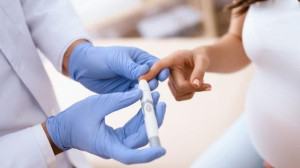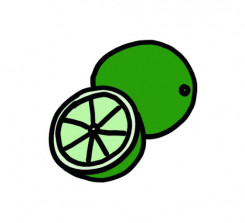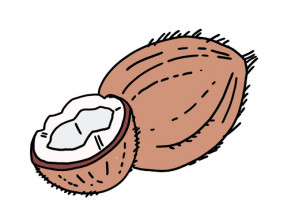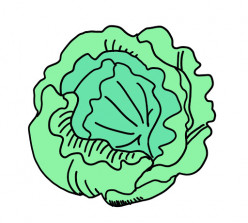Your baby is now officially an embryo and is about the size of a poppy seed.
Please visit www.nhs.uk/conditions/pregnancy-and-baby/4-weeks-pregnant/ for more information.
Local Maternity and Neonatal System
View navigation
Pregnancy journey
 Once you’re pregnant, you need to try to achieve very tight blood glucose control. This can be extremely stressful and demanding. If you take insulin your requirements may change if you have morning sickness, and as your pregnancy progresses. You might find your usual early warning signs of a hypo change or disappear completely. You can seek the support and understanding of family, friends and your health professionals.
Once you’re pregnant, you need to try to achieve very tight blood glucose control. This can be extremely stressful and demanding. If you take insulin your requirements may change if you have morning sickness, and as your pregnancy progresses. You might find your usual early warning signs of a hypo change or disappear completely. You can seek the support and understanding of family, friends and your health professionals.
Your Medical Obstetric Team will provide you with a schedule of check-ups and tests. Certain complications can be affected by pregnancy (e.g., kidney and eye problems). Your team will closely monitor you during pregnancy.
The growth of your baby will need to be closely monitored, as the baby is at a higher risk of developing a condition known as macrosomia, which means ‘large body’, if your blood glucose levels are high.
The baby may also have problems if you have high blood glucose levels at birth as it continues to make extra insulin for a day or two. Keeping your blood glucose levels within target will significantly reduce the risk of these problems occurring.
More information on managing your diabetes during pregnancy is available on the Diabetes UK website here .
There is no reason for you not to expect a normal birth experience. You can still carry your baby to full-term and go into labour on your own, although some women are advised to have their baby early for various reasons, including diabetes control or the baby becoming too large.
You can still have a vaginal birth, although it is more common to have a caesarean section if needed. You will be able to discuss all options with your Medical Obstetric Team and plan for your baby’s birth towards the end of your pregnancy.
Immediately after delivery of your baby, insulin doses return to pre-pregnancy levels, so it is worth keeping a record of what these were prior to pregnancy.
Your baby will be checked for hypoglycaemia on the ward. Feeding you baby soon after birth and every 2-3 hours initially until your baby’s blood glucose is stable will help reduce the likelihood of this happening. You may need to stay in the hospital for a little longer as your baby will need to be observed.
 If you want to breastfeed, there’s no reason you can’t. You’ll just need to watch for fluctuations in your blood glucose levels and try to plan ahead. You’ll probably need to eat more carbohydrate when feeding, especially in the early months. You may find that your milk is slower to ‘come in’, but your midwife or lactation consultant will help and advise you. Breastfeeding can reduce the risk of your baby developing Type 2 diabetes in later life.
If you want to breastfeed, there’s no reason you can’t. You’ll just need to watch for fluctuations in your blood glucose levels and try to plan ahead. You’ll probably need to eat more carbohydrate when feeding, especially in the early months. You may find that your milk is slower to ‘come in’, but your midwife or lactation consultant will help and advise you. Breastfeeding can reduce the risk of your baby developing Type 2 diabetes in later life.

Your baby is now officially an embryo and is about the size of a poppy seed.
Please visit www.nhs.uk/conditions/pregnancy-and-baby/4-weeks-pregnant/ for more information.

Your baby is now the size of a kidney bean and weighs 1g.
Please visit www.nhs.uk/conditions/pregnancy-and-baby/8-weeks-pregnant/ for more information.

Welcome to the second trimester!
Your baby is about the size of a small lime and weighs approximately 14g.
You have hopefully seen your midwife for your 'booking in' appointment, if you have not yet seen a midwife please make an appointment quickly, so you can have all of your choices about screening tests explained and offered to you.
Please visit www.nhs.uk/conditions/pregnancy-and-baby/12-weeks-pregnant/ for more information. You can also link to the 'Pregnancy Journey' area here.

Your baby is about the size of an avocado and weighs approximately 100g.
Please visit www.nhs.uk/conditions/pregnancy-and-baby/16-weeks-pregnant/ for more information.

Your baby has grown in length and is now the length of a small banana and weighs approximately 300g. Around this time you will be offered your '20 week' scan, also known as the 'anatomy' or 'anomaly' scan.Click here for more information about screening.
This is a also a good time to talk and sing to your bump as your baby can now hear sounds. This is great way for you and your partner/family to bond with your baby.
Please visit www.nhs.uk/conditions/pregnancy-and-baby/20-weeks-pregnant/ for more information.

Your baby has grown again to the approximate length of an ear of sweetcorn and weighs about 600g.
Please visit www.nhs.uk/conditions/pregnancy-and-baby/24-weeks-pregnant/ for more information.

Welcome to the third trimester!
Your baby is now approximately the weight of an aubergine; about 1kg and approximately 37cm in length.
Please visit www.nhs.uk/conditions/pregnancy-and-baby/28-weeks-pregnant/ for more information.

Your baby now weighs approximately the same as a coconut; around 1.5kg.
Please visit www.nhs.uk/conditions/pregnancy-and-baby/32-weeks-pregnant/ for more information.

Your baby is now around the same size as a lettuce, approximately 47cm long and weighs around 2.6kg.
Please visit www.nhs.uk/conditions/pregnancy-and-baby/36-weeks-pregnant/ for more information.

Your baby is now the weight of a small watermelon which is approximately 3.3kg and around 50cm in length.
Please visit www.nhs.uk/conditions/pregnancy-and-baby/40-weeks-pregnant/ for more information.